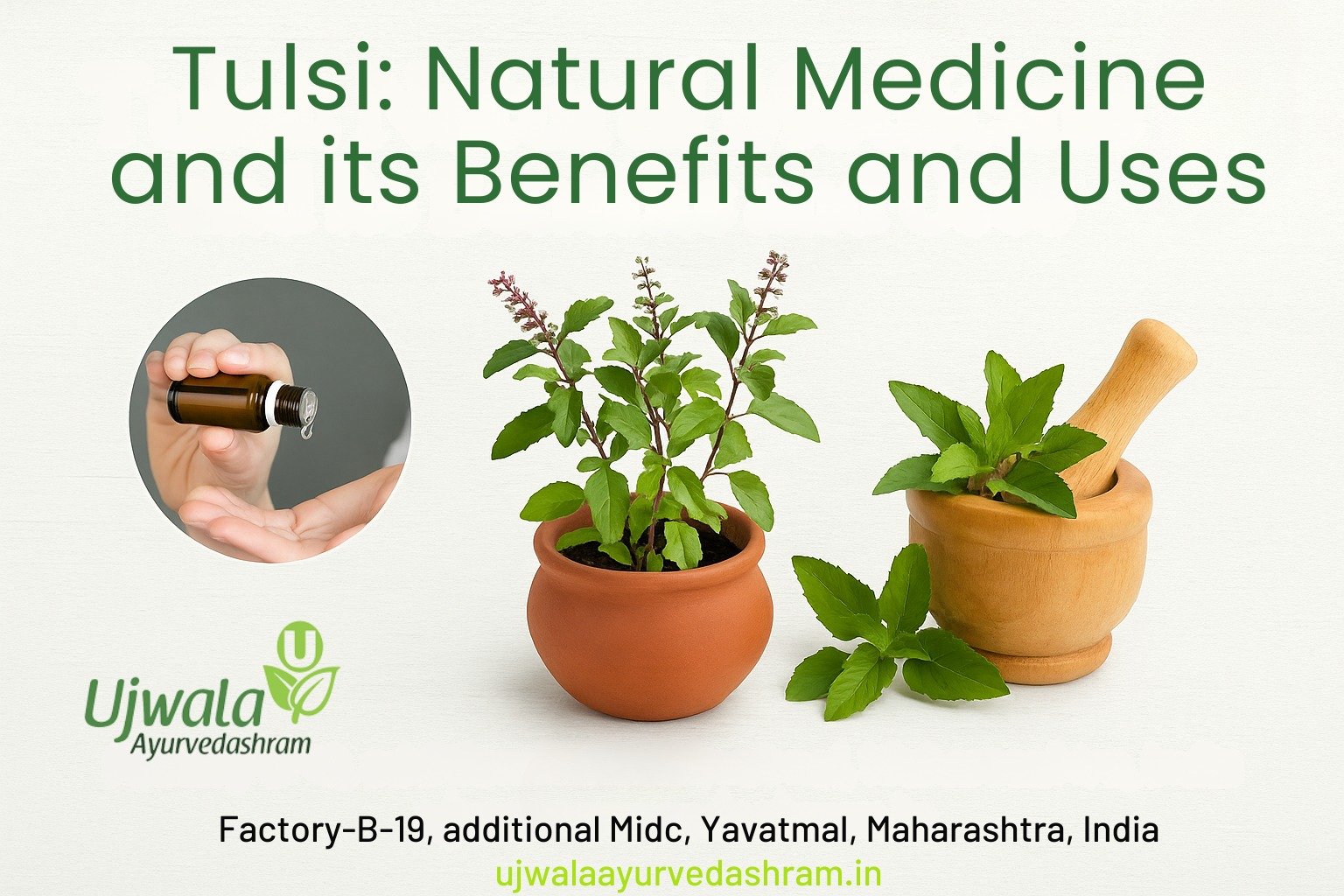Address
Factory-B-19, additional Midc, Yavatmal, Maharashtra, India
Work Hours
Monday to Saturday: 10 AM - 5 PM
Sunday: Closed
Address
Factory-B-19, additional Midc, Yavatmal, Maharashtra, India
Work Hours
Monday to Saturday: 10 AM - 5 PM
Sunday: Closed

Tulsi, also known as Holy Basil, is revered in Ayurvedic medicine and Hindu culture for its extra ordinary healing properties. This sacred herb is often called “Nature’s Pharmacy” due to its countless health benefits, which have been highly researched and validated.
Table of Contents
Tulsi has been used for over 5,000 years in traditional Indian medicine, spiritual practices, and daily life. It’s considered a sacred plant, believed to bring prosperity, good fortune, and spiritual growth.
Chemical Composition
Tulsi contains:
Terpenoids (ursolic acid)
Volatile oils (eugenol, linalool)
Flavonoids (orientin, vicenin)
Phenolic compounds (rosmarinic acid)
The Tulsi plant contains numerous active compounds and the major compounds are linalol, eugenol, methylchavicol, methylcinnamat, linolen, ocimene, pinene, cineol, anethol, estragol, thymol, citral, and camphor.
Anti-Cancer Properties: Inhibits cancer cell growth and induces apoptosis.
Antimicrobial and Anti-Inflammatory: Effective against bacteria, viruses, and fungi, reducing inflammation and promoting wound healing.
Antioxidant: Protects against oxidative stress, cell damage, and cancer.
Immune System: Enhances immune function, reducing fever and infections.
Respiratory Health: Relieves coughs, colds, bronchitis, and asthma.
Stress Relief: Reduces anxiety, stress, and cortisol levels.
Digestive Health: Eases digestive issues, such as bloating, gas, and diarrhea.
Skin and Hair: Treats acne, eczema, and promotes healthy hair growth.
Cardiovascular Health: Lowers cholesterol, blood pressure, and risk of heart disease.
Oral Health: Prevents tooth decay, gum disease, and bad breath.
Infusions: Steep leaves in hot water for respiratory relief.
Tea: Steep 10-15 leaves in boiling water for 5-7 minutes.
Juice: Extract juice from fresh leaves and mix with water.
Oil: Apply topically for skin and hair benefits.
Powder: Mix with water or ghee for digestive issues.
Blood sugar : Tulsi may lower blood sugar, so it should be monitored regularly if taken with anti-diabetic drugs.
Pregnancy : Tulsi should be avoided during pregnancy because it may increase the risk of abortion by stimulating uterine contractions.
Allergies: People who are allergic or hypersensitive to tulsi or members of the mint plant family should use tulsi under a doctor’s supervision.
Interactions: High doses of tulsi leaves may have negative effects on sperm count and sex hormones in male rabbits.
Thyroid health : Tulsi may decrease levels of the thyroid hormone thyroxine, worsening hypothyroidism.
Surgery : Tulsi may increase the risk of bleeding during and after surgery.
Breast feeding : Not enough is known about the safety of tulsi for breastfeeding women, so it should be taken under medical supervision.
Tulsi is classified as: